Minsk’s muddled media clampdown could jeopardize warming of relations with the West.
Andrei Yahorau: Europe tries to test intentions of the Belarusan government

The visit of Tomislav Nikolić to Minsk can, among others, perform diplomatic function in terms of intermediation between the EU and Belarus. This opinion in the talk with the EuroBelarus Information Service shared Andrei Yahorau, political scientist, the director of the Centre for European transformation.
“The fact that Serbia is not a member of the European Union means that nominally, the President of this country is not limited in his contacts with the high-ranking Belarusan officials,” he recalled.
Andrei Yahorau noted that the latest initiatives of the Foreign Ministry of Belarus aimed at activation of contacts with the EU require certain type of diplomatic work.
And Tomislav Nikolić’s visit can perform among others a diplomatic function, designed to check how serious Belarusan government is; even despite the fact that Serbia supported EU sanctions against high-ranking officials of Belarus.
“Europe tries to test Belarusan authorities in many different ways,” guesses Andrei Yahorau.
Let us recall that the official two-day visit of the Serbian President Tomislav Nikolić took place of March 12-14. The visit presupposed negotiations between the Belarusan and the Serbian leaders both for broad and narrow discussion, meetings of the Serbian party with business groups of Belarus as well as visits to different plants and facilities in Minsk.
Others
-
In Belarus, a rising fear: Will we be the next Ukraine?
The relationship between Russia and Belarus has never been an easy one. The two former Soviet republics have spent the last two decades on a roller coaster ride — sometimes allies, sometimes adversaries in heated public rows.
-
The EU’s Benign Neglect of Eastern Europe
Between November 6 and December 11, 2015, Carnegie Europe continued its Capitals Series. In this second phase, the focus was on the EU’s Eastern neighbors, which the bloc has so often zigzagged over in trying to establish a coherent policy toward them collectively or bilaterally.
-
New ENP and Civil Society’s Role in Focus of the 7th EaP CSF Annual Assembly (Photo)
The 7th Annual Assembly of the Eastern Partnership Civil Society Forum was held in Kyiv on 19-21 November attracting around 300 participants, observers and guests who attended more than 20 sessions and a Networking Fair in the framework of the Assembly.
-
Is social economy a phenomenon for Belarus?
The conference “Social economy: how to be successful despite the crisis” launched in Minsk on October 22.

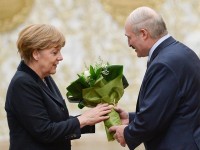
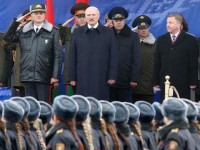
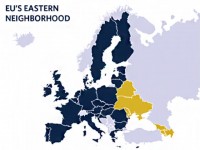
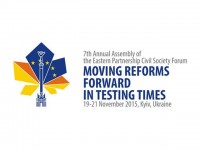
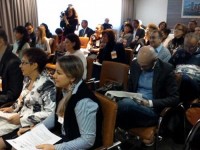


Comments
From farewell to a new Eastern policy and towards a new development
Poland and Germany were both initiators and drivers of a New Eastern policy linked to the Eastern neighborhood and Russia/Soviet Union.